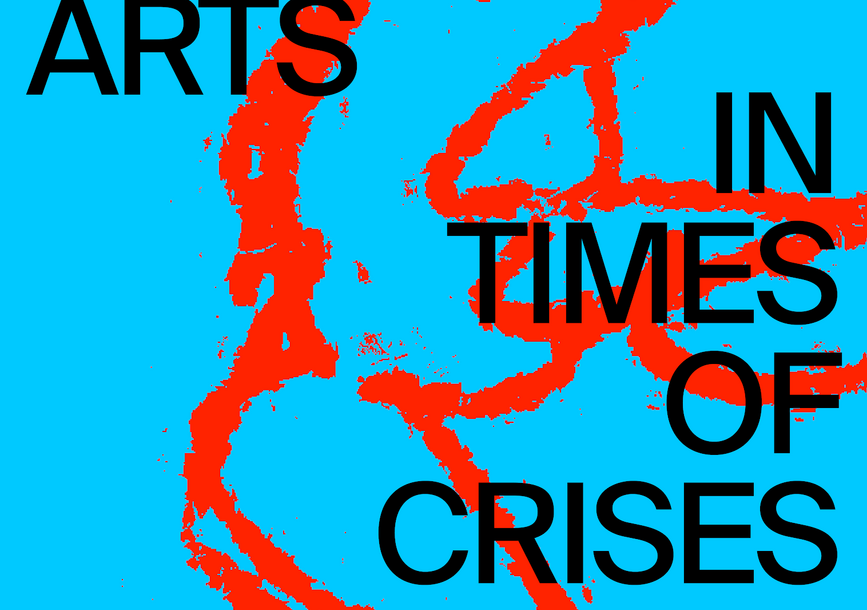The Thomas Mann House, Zócalo Public Square, and L.A. Review of Books convenes a conference on the role of artists in weakened democracies. The freedom of art and artistic expression is one of the imperatives of every democracy. What is the role of artists and art institutions when democracies come under pressure? Is it legitimate to speak about a political mandate of the arts? Today, against the backdrop of global geopolitical tensions, wars, and societal divisions in many Western democracies, art shows again its transformational power to connect, heal, subvert, and bring together. Through this international conference, which includes artistic interventions, performances, and conversations at REDCAT, experts, activists, cultural organizers, and artists explore how the arts can make a difference in a time of international crises, and how they can contribute to the functioning of democracies on a local and global level.
Can’t join us in person? Watch the panel conversations taking place between 2:15 PM - 6 PM (PT) on Zócalo Public Square’s YouTube channel here. Register for the online-only ticket to receive the link in reminder emails as the date nears.
Part I
1:30 PM Once, We Were Rivers
Poetry Reading by Lynne Thompson, Poet Laureate of Los Angeles, 2021-2022
1:45 PM Welcoming Address
Steven Lavine, President Emeritus CalArts, Chairman of the Thomas Mann House Advisory Board
Andreas Michaelis, German Ambassador to the United States
Markus Klimmer, Chairman of Villa Aurora & Thomas Mann House e.V.
2:00 PM A Search for Radical Democracy
Keynote Performance by Guillermo Gómez-Peña, Performance Artist, and Artistic Director of La Pocha Nostra
2:30 PM Must Artists Be Activists?
Panel discussion with Q&A. Moderated by Karen Mack, Founder and Executive Director, LA Commons.
“This is precisely the time when artists go to work,” a friend told Toni Morrison in a fraught political moment, “not when everything is fine, but in times of dread. That’s our job!” Is this true of every artist, and must it be the case all the time? Great art and true democracies are built on freedom of expression—but when it comes under threat, are artists who don’t respond acting irresponsibly? Can artists shield themselves from the demands of politics and polarized discourse or—in places and periods where activism puts their life and liberty at risk—from bodily danger? Does all their work, in a moment of crisis, have to address that crisis? And how can they know when that moment has come?
Two women artists—social-practice artist Suzanne Lacy and photographer Catherine Opie—discuss the role they see themselves, their work, and their peers playing in sustaining, enhancing, or even strengthening democracy when it feels like everything is going up in flames.
Live in person at REDCAT and live-streamed to Zócalo Public Square’s YouTube Channel channel here.
3:45 PM End of Part 1
Part II
4:45 PM How Should Arts Institutions Navigate the Culture Wars?
Panel Discussion with Q&A. Moderated by Kristin Sakoda, Director, Los Angeles County Department of Arts and Culture.
Polarization has engulfed arts organizations—like every other institution in 21st-century American and European life. But rather than finding themselves pulled apart by political parties doing battle, museums, performing arts companies, and other cultural cornerstones often face other conflicting demands, positioned between their aging donors and overwhelmingly white audience-bases on one side and younger, more diverse artists and new audiences on the other. How are institutional leaders navigating the warring tides of politics and public opinion—tides that may steer them toward uncertain futures? Can organizations help artists, patrons, and the public find common ground, or productive ways to discuss their differences, in this moment of deep democratic and cultural conflict? And, even as they themselves struggle to stay afloat, how do arts institutions serve as spaces of civic engagement, community, and inclusion?
MOCA director Johanna Burton, Center Theatre Group artistic director Snehal Desai, former Oregon Shakespeare Festival executive artistic director Nataki Garrett, and Whitney Museum director emeritus Adam D. Weinberg discuss how the culture wars have impacted their work, and where they see institutions, and the arts at large, going next.
Live in person at REDCAT and live-streamed to Zócalo Public Square’s YouTube Channel channel here.
6:00 PM The Future of Truth: Werner Herzog & Paul Holdengräber in Conversation
Keynote Dialogue with Filmmaker Werner Herzog and Cultural Interlocutor Paul Holdengräber
7:30 PM End of Part II
The venue is wheelchair accessible. American Sign Language ASL interpretation is provided by Pro Bono ASL. Assisted listening devices are also available at the venue.
